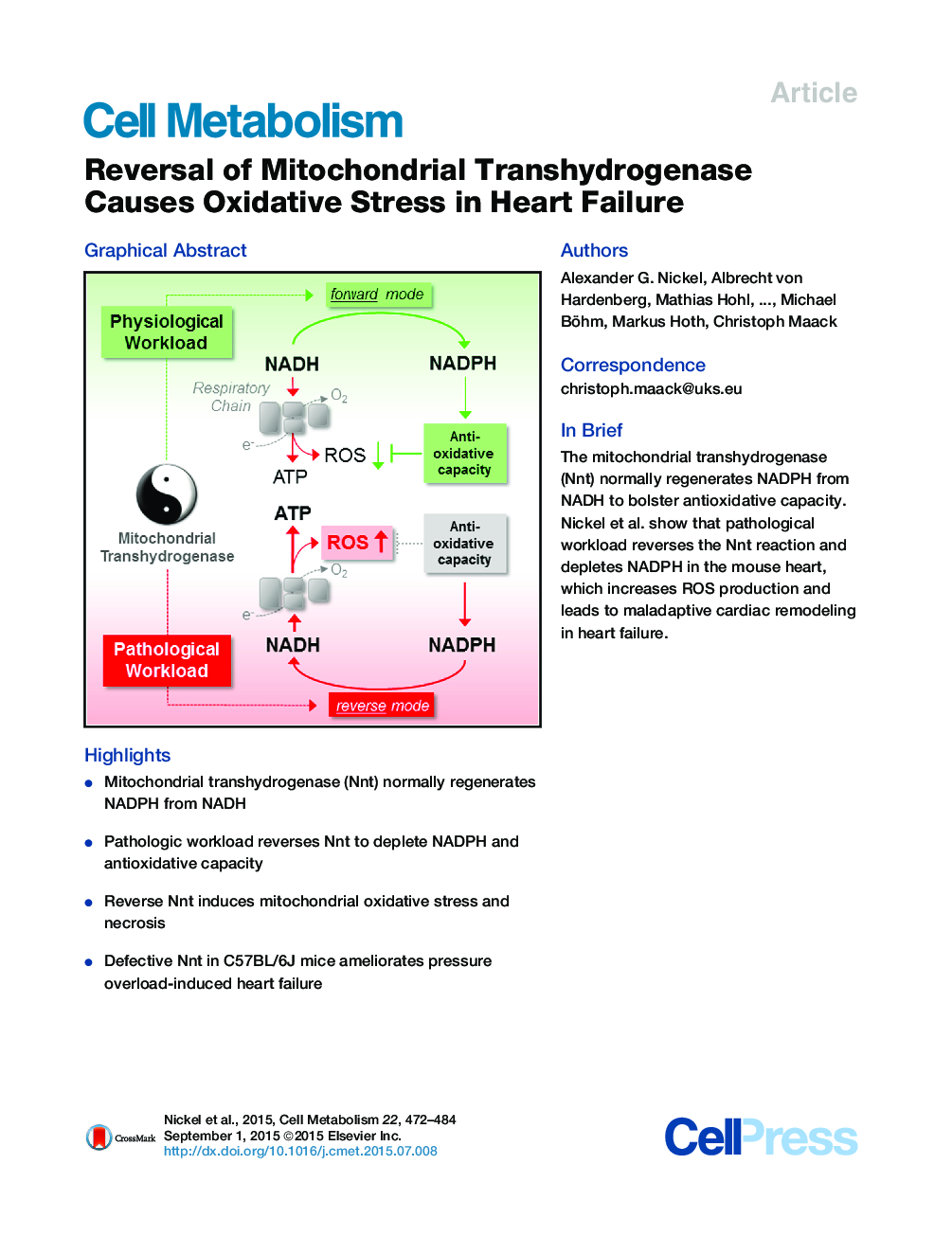| کد مقاله | کد نشریه | سال انتشار | مقاله انگلیسی | نسخه تمام متن |
|---|---|---|---|---|
| 2792466 | 1155052 | 2015 | 13 صفحه PDF | دانلود رایگان |
• Mitochondrial transhydrogenase (Nnt) normally regenerates NADPH from NADH
• Pathologic workload reverses Nnt to deplete NADPH and antioxidative capacity
• Reverse Nnt induces mitochondrial oxidative stress and necrosis
• Defective Nnt in C57BL/6J mice ameliorates pressure overload-induced heart failure
SummaryMitochondrial reactive oxygen species (ROS) play a central role in most aging-related diseases. ROS are produced at the respiratory chain that demands NADH for electron transport and are eliminated by enzymes that require NADPH. The nicotinamide nucleotide transhydrogenase (Nnt) is considered a key antioxidative enzyme based on its ability to regenerate NADPH from NADH. Here, we show that pathological metabolic demand reverses the direction of the Nnt, consuming NADPH to support NADH and ATP production, but at the cost of NADPH-linked antioxidative capacity. In heart, reverse-mode Nnt is the dominant source for ROS during pressure overload. Due to a mutation of the Nnt gene, the inbred mouse strain C57BL/6J is protected from oxidative stress, heart failure, and death, making its use in cardiovascular research problematic. Targeting Nnt-mediated ROS with the tetrapeptide SS-31 rescued mortality in pressure overload-induced heart failure and could therefore have therapeutic potential in patients with this syndrome.
Graphical AbstractFigure optionsDownload high-quality image (179 K)Download as PowerPoint slide
Journal: - Volume 22, Issue 3, 1 September 2015, Pages 472–484
